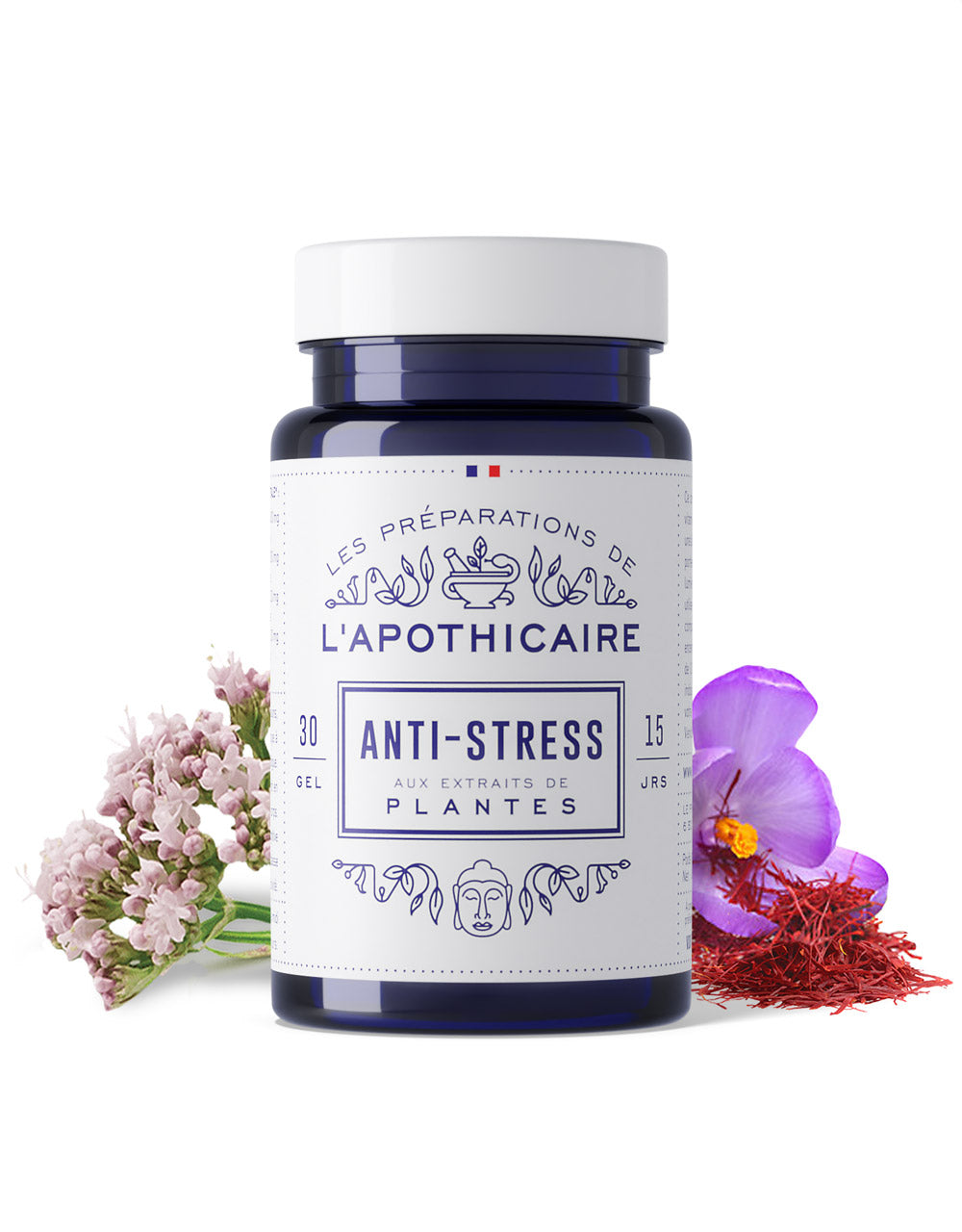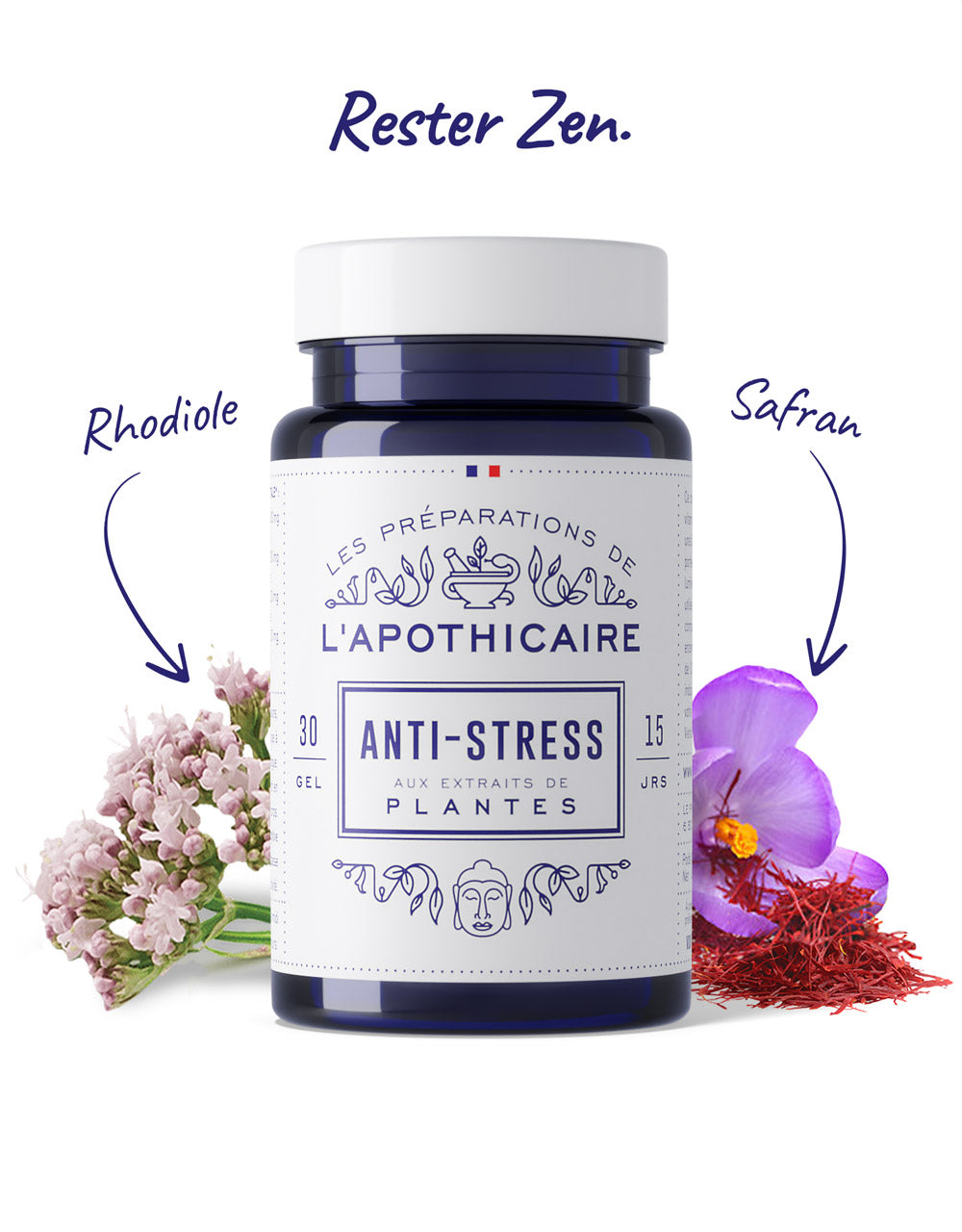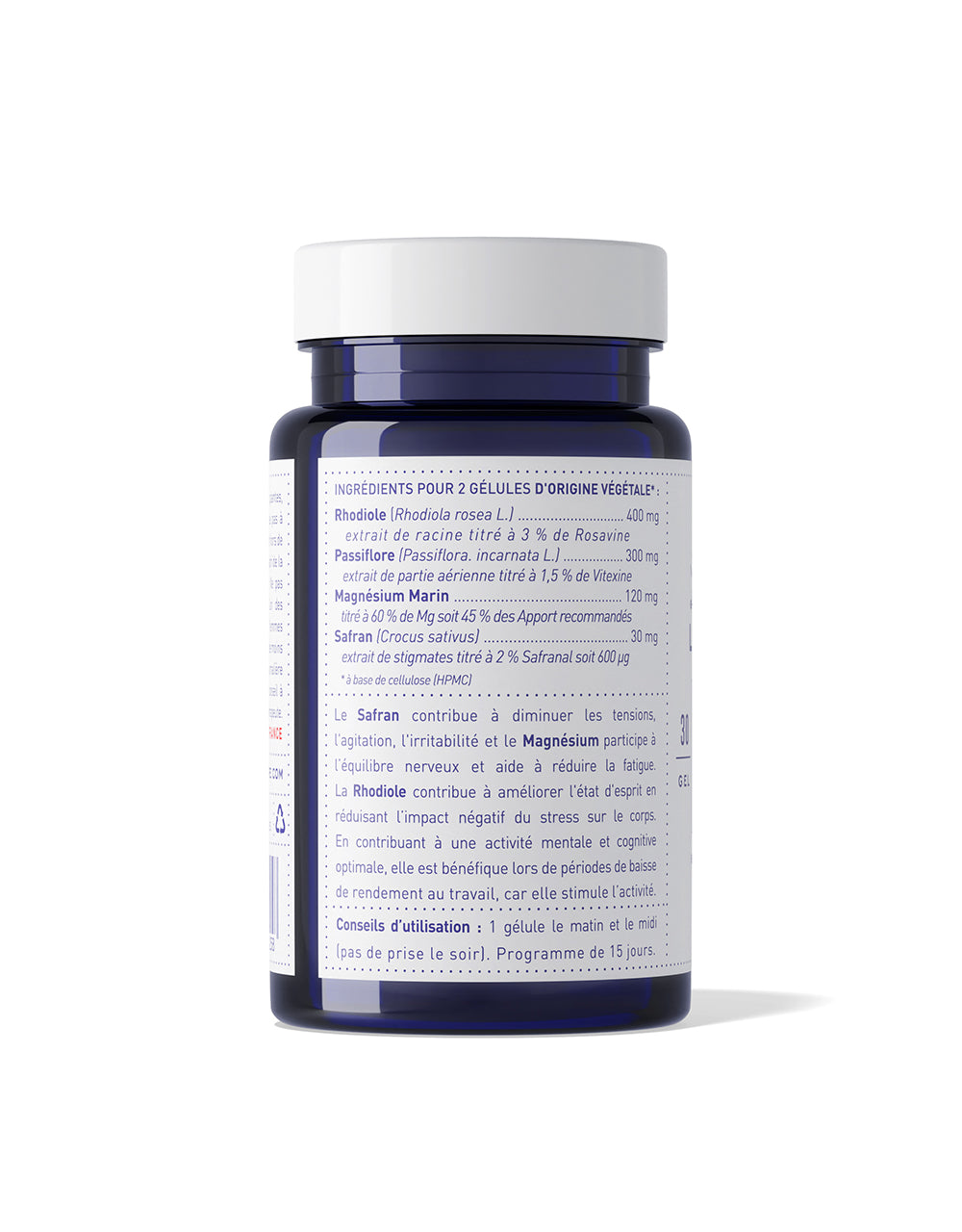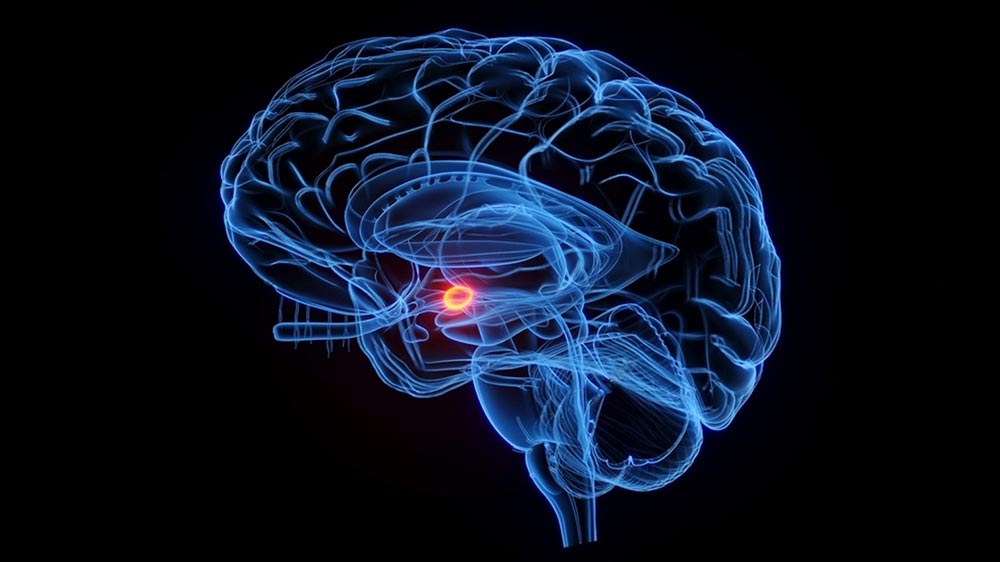Part 1: What is stress?
1.1 | Definition of stress
Stress can be defined as the syndrome of general adaptation to our environment.
It is natural and helps us react better to an unexpected situation. It is a physiological reaction to change. We give it a negative connotation, yet initially it is an excellent defense mechanism in the face of the unexpected.
When we experience a new situation, the stress system spontaneously starts to protect us in an archaic way, for our survival.
It is our reptilian brain (the most primitive part of the brain which manages our survival) which activates to defend us instinctively.
To put it simply: this operation therefore escapes our control and given that its start-up is primitive, we have no power over this mechanism.
1.2 | Biology of stress: Amygdala, adrenals & cortisol
Fortunately, our reptilian brain does not take all the control and we also have a more elaborate limbic brain. This is where our amygdala is hidden (no, not the ones hidden at the back of the throat…).
- The amygdala is a gland in the brain whose mission is to scan our environment; it is the body's watchdog which comes to life in the event of a feeling of worry. It detects any anomaly and in the event of a problem will trigger the secretion of neurotransmitters to trigger the alert.
These neurotransmitters: adrenaline , norepinephrine for example, will then stimulate two glands: the adrenals , which as their name indicates are located above the kidneys. - The adrenals will then activate the secretion of cortisol , commonly called the stress hormone.
- Cortisol triggers cascading reactions to increase alertness:
- increased blood pressure
- increased heartbeat
- release of more sugars into the blood
Everything is designed to make us ready to react to stress!
1.3 | Reactions to stress
The increase in cortisol will allow us to react to the stressful stimulus and three reactions can take place:
• Escape : we flee the stressful situation
• The fight : we are ready to face the problem and fight
• Feigned death : we fall into a state of inhibition and “do the
dead” to make us forget
Part 2: How to identify stress?
Natural science class is over, now let's move on to the symptoms of stress. It is important to identify our stress when it increases in a disabling way and persists for a prolonged period.

2.1 | Classic symptoms
We have all experienced it before climbing onto the classroom platform when we have to recite our poetry in front of all our classmates in CM2:
- Sweaty palms
- The heart that accelerates
- Shorter breathing
- Dry mouth
- Stomach ache…
To put it simply: this operation therefore escapes our control and given that its start-up is primitive, we have no power over this mechanism.

2.2 | Other symptoms
- Changing behavior in the face of addictions : smoking more, drinking more, taking more medication, etc.
- Make sure to avoid others : suffer from social exclusion, refuse invitations,
avoid work colleagues at lunch break, be quieter… - Suffering from lots of small physical inconveniences , i.e. somatizing (going through the body to express stress): back pain, contractures in the neck, eczema, psoriasis, acid reflux, etc.

2.3 | When stress becomes chronic...
There is no shortage of stress factors in our modern lives : poor working conditions, children's stress, failing marital or family relationships, financial stress when making ends meet are difficult...
Chronic stress can then set in insidiously over the long term and you may identify recurring symptoms such as disturbed sleep with nighttime awakenings.
Info : These nocturnal awakenings correspond to the secretion of cortisol which is activated in the early morning to increase our alertness in an exacerbated manner!
If you have been experiencing symptoms of stress for a few weeks, it is time to react so as not to fall into debilitating chronic stress and here are our tips for dealing with it:
Part 3: Holistic approach to stress
To best deal with the deleterious effects of stress, you must have a holistic approach, that is to say global, by treating each part of the whole. We have plenty of resources available to help us better manage our stress, plenty of levers to pull to lower our stress level by adopting a healthy lifestyle.

3.1 | Have a good sleep
Sleeping well in sufficient quantity and with good quality of sleep helps to relieve our stress. However, it is the first parameter to be disrupted in the event of stress.
Here is a brief reminder of the conditions required to sleep well:
- No screens one hour before bed : favor reading time which is conducive to falling asleep
- A cool, dark room
- Go to bed at the first signs of sleep such as yawning

3.2 | To move
Moving and practicing physical activity, especially in the morning and in natural light, helps lower cortisol levels. Avoid intense activity in the evening which, on the contrary, will stimulate its secretion.
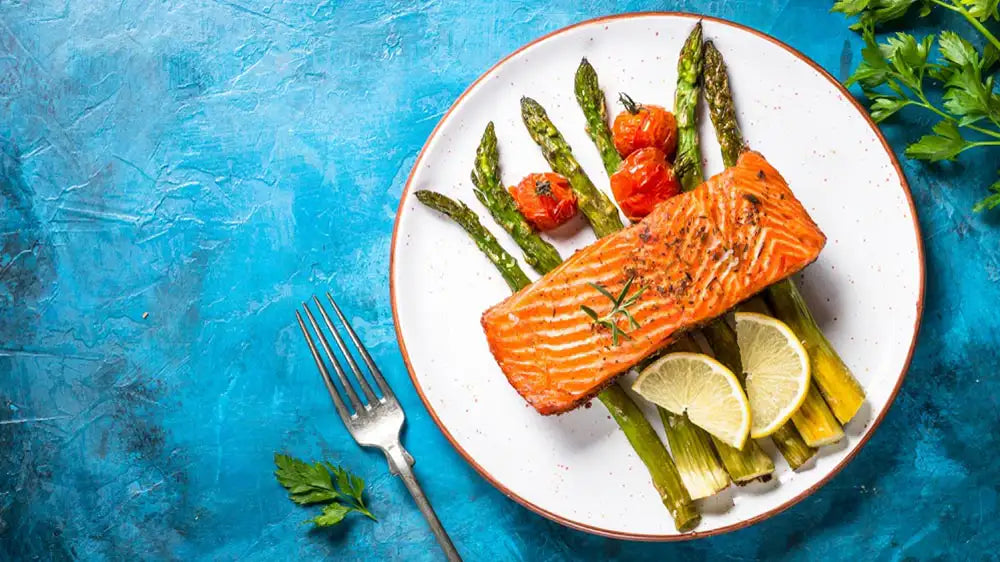
3.3 | Taking care of our plate every day
We have basic nutrient needs that increase in the event of stress, such as magnesium or omega 3, these good fats that our brain loves:
- Sources of magnesium : almonds, bananas, green vegetables or even dark chocolate with more than 70% cocoa.
- Source of omega 3 :
- good oils: rapeseed, walnut, camelina, flax…
- oilseeds: walnuts, hazelnuts, Brazil nuts, etc.
- small fish herring, mackerel, sardines, anchovies…
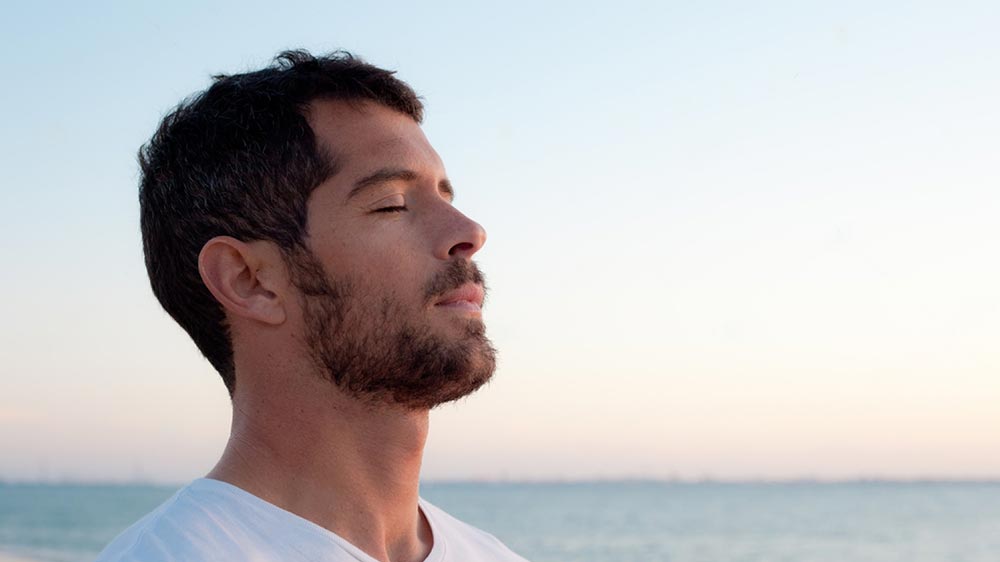
3.4 | Breathe
In case of stress, you can pay attention to your breathing. We are often in apnea when we are stressed. Here are some practices that can help you:
- Cardiac coherence: 5-minute breathing exercises that align your breathing movements with the heartbeat and lower cortisol levels.
- Meditation: for more trained minds, regular sessions of mindfulness meditation reduce cortisol levels and therefore stress.
- Sophrology: combines relaxation, breathing and positive visualization techniques, which promotes relaxation.
- Hypnosis : using suggestions made during this altered state of consciousness, the goal is to modify the perception of the elements that generate stress.

3.5 | Connect to Nature
It has been proven that contemplating natural landscapes rather than a mineral city environment calms our brain and our stress. Reconnecting with nature in times of stress is an effective response. You have all experienced it when you return from vacation in the mountains or by the sea where you are more relaxed.

3.6 | Creativity
Using artistic activities: drawing, reading, sewing, knitting, tinkering helps reduce our stress. Do not neglect these activities in cases of stress, they allow us to focus attention on something other than our stress and to let go.
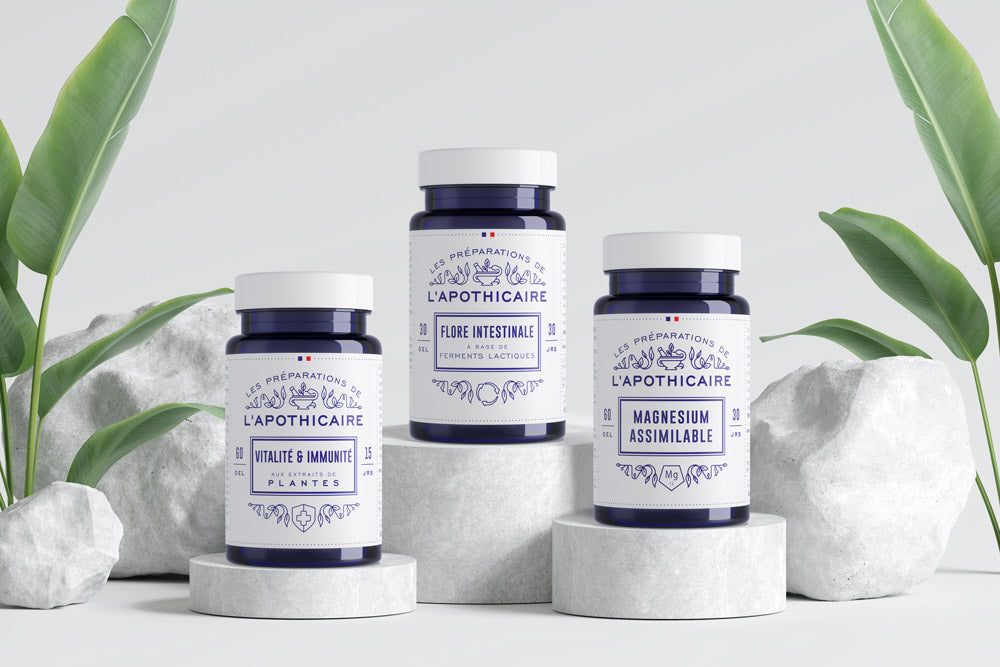
3.7 | Gentle therapeutics
Finally, when stress sets in for a prolonged period and ruins our lives, we can dig into the wonders of aromatherapy and herbal medicine. Certain plants are our allies in times of stress, notably adaptogenic plants, such as rhodiola, which help us adapt.
Rhodiola is similar to ginseng and contains many active molecules, including numerous anti-oxidants which help our body fight against oxidative stress. It is the “anti-stress” plant par excellence which will boost our body and help it respond better to stress.
Discover our anti-stress supplements
Anti stress
- Regular price
-
€20,90 - Regular price
-
- Sale price
-
€20,90
Tax included.
Shipping calculated at checkout.
